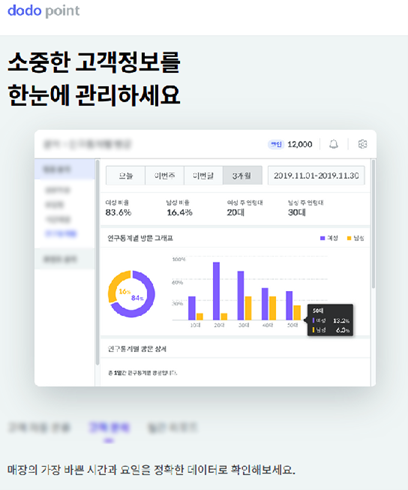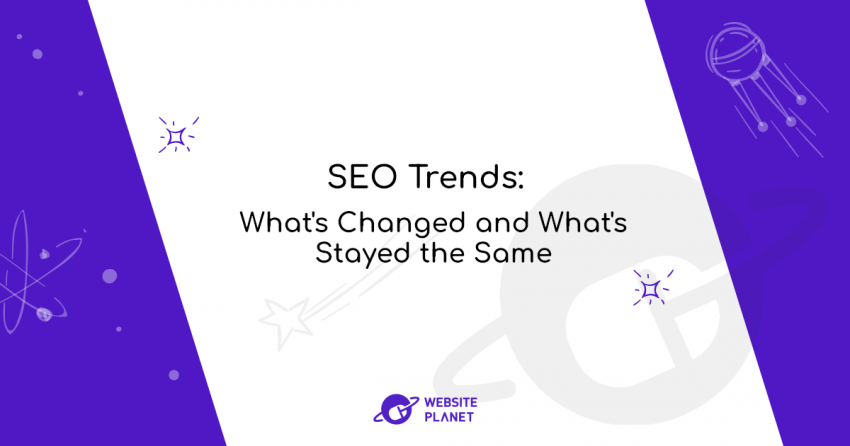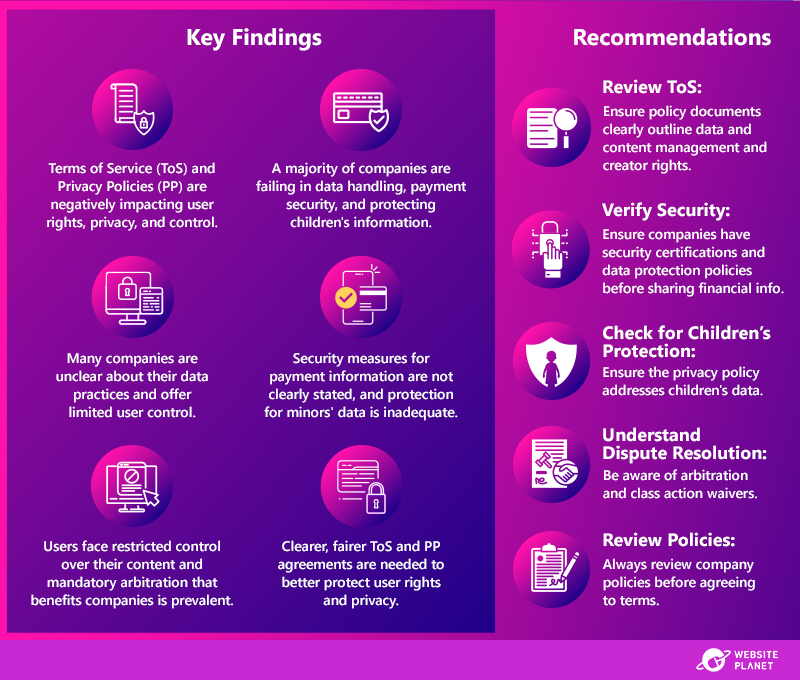Inside this Article
Dodo Point’s open Amazon bucket exposed at least 1 million customers’ PII and thousands of retail outlets’ sensitive data.
| Company name and location | Dodo Point, operated by Yanolja Cloud, based in Seoul, South Korea |
| Size (in GB and amount of files) | Over 38 GB of data, around 73,000 files |
| Data Storage Format | Amazon AWS S3 bucket |
| Countries Affected | South Korea |
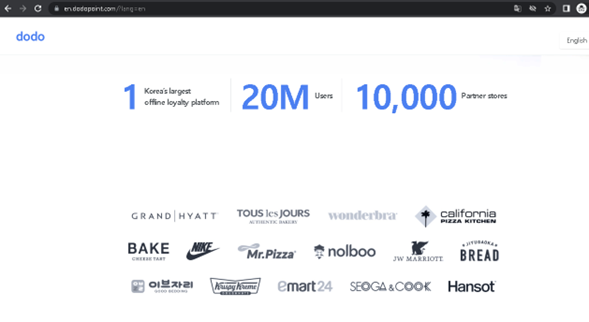 Customer loyalty programs collect a wealth of information about shoppers and their buying habits, as Dodo Point’s bucket demonstrates. Customers should consider this extensive data collection and its associated privacy risks before joining a loyalty program.
Customer loyalty programs collect a wealth of information about shoppers and their buying habits, as Dodo Point’s bucket demonstrates. Customers should consider this extensive data collection and its associated privacy risks before joining a loyalty program.
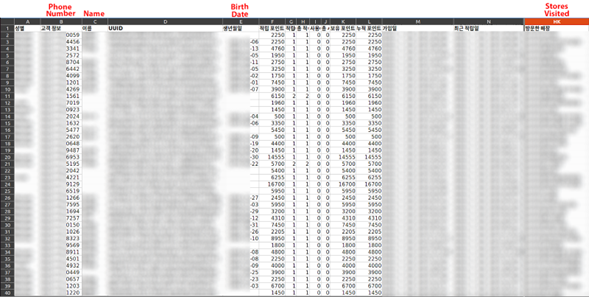
Status of the Data Exposure
We found Dodo Point’s open bucket on March 28th, 2022.- March 28th, 2022: We contacted Spoqa — the company that owned Dodo Point before Yanolja Cloud — in an attempt to responsibly disclose the incident, but didn’t receive a response.
- April 5th, 2022: We reached out to new contacts at Spoqa (no response).
- April 15th, 2022: After initial contact, we responsibly disclosed the incident to the Korean CERT but received no further communications.
- April 15th, 2022: We responsibly disclosed Dodo Point’s incident to AWS (no response).
- April 26th and May 4th, 2022: We contacted new Spoqa (Dodo Point) contacts.
- May 8th, 2022: We reached out to Yanolja (new Dodo Point owner).
- May 9th, 2022: We responsibly disclosed the breach to Yanolja (Dodo Point) and the company promptly responded to our communications.
- May 11th, 2022: Dodo Point’s bucket was secured.
Customer & Company Data Exposed
Dodo Point’s bucket contained three datasets: Files with tables of customers’ personal information, Dodo Point clients’ monthly reports, and Dodo Point clients’ payment details. These datasets exposed the personal and sensitive data of retail stores using Dodo Point’s services (clients) and retail customers who joined loyalty programs via Dodo Point. Exposed data included:- Customers’ personal data: Names, dates of birth (of most customers), genders, phone numbers, email addresses (of some customers), store visited, date of joining the service, and reward points gained.
- Sensitive business data: Daily shop incomes, amount of new customers, avg. profit per customer, customer segmentation (by gender and age), and performance comparisons to previous months.
- Client payment details: Bank transfer and direct debit details.
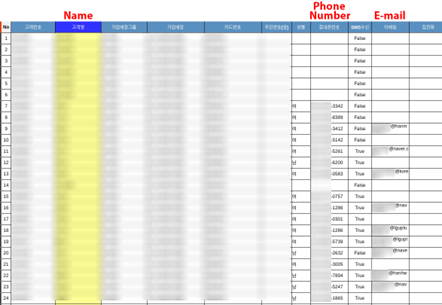
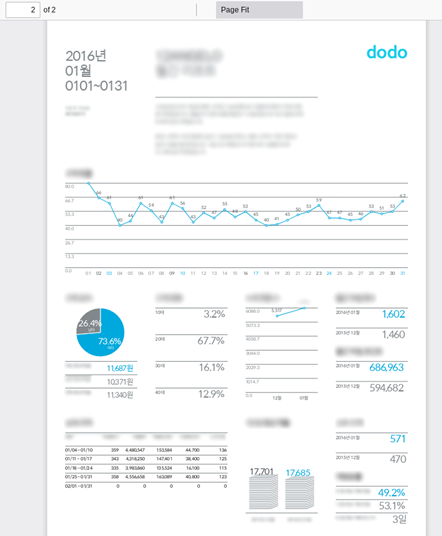

Impact on Customers and Dodo Point Clients
We do not and cannot know whether malicious actors have accessed Dodo Point’s open bucket. However, exposed customers and businesses could face several security risks if bad actors have obtained the data.- Privacy violation: Customers are identifiable and have private information like “store visited” and “date of joining” exposed. This represents a privacy violation that could impact customers’ personal lives. For example, a customer could face consequences if their employer found out they visited a store during working hours. Furthermore, by linking phone numbers to people, someone could use the data to augment digital campaigns based on exposed information about users’ interests (e.g. fashion, electronics, etc).
- Phishing and scams: Attackers could send customers phishing messages and scams via phone or email, referencing personal information and shopping habits to trick victims into providing money, sensitive information, or downloading malware.
- Industrial espionage: Dodo Point clients have detailed reports containing revenues and customer traffic data exposed, not to mention their payment details. Rival businesses could use this information to gain insights into exposed businesses and achieve a competitive advantage.
Protecting Your Data
Customers who’ve signed up to Dodo Point should ignore any messages from unknown or suspicious sources. Customers should refrain from clicking links in emails or SMS messages unless they’re 100% certain the source is legitimate. Businesses and individuals alike should educate themselves and their staff about scams, phishing attacks, and malware.About Yanolja Cloud & Dodo Point
Yanolja Cloud is headquartered in Seoul, South Korea, and was founded in 2005. Yanolja acquired Dodo Point from Spoqa in late January 2022. Dodo Point is a customer club solution that offers shoppers convenience and provides businesses with several added benefits. Dodo Point updates customers about their rewards via text message, which means they don’t have to carry a loyalty card or download an app. Businesses that purchase Dodo Point can make use of customer analysis features (“Dodo Insight”), marketing automation tools (“Dodo Message”), and targeted advertising functionality (“Dodo Ads”). We know the bucket belongs to Dodo Point because pictures on the bucket also appear on Dodo’s website, while services listed on the company’s website match the bucket’s content.